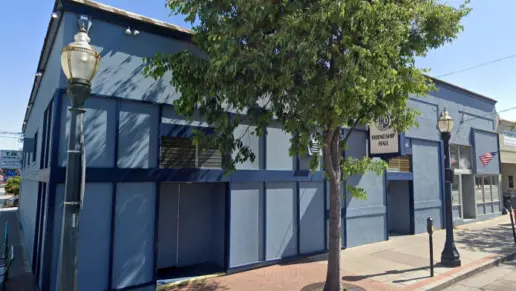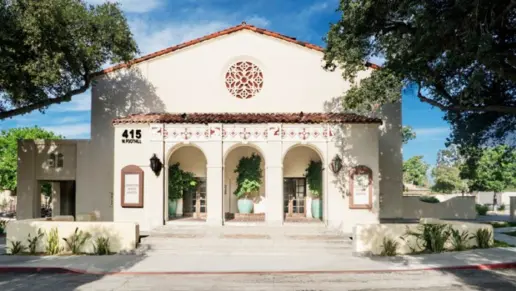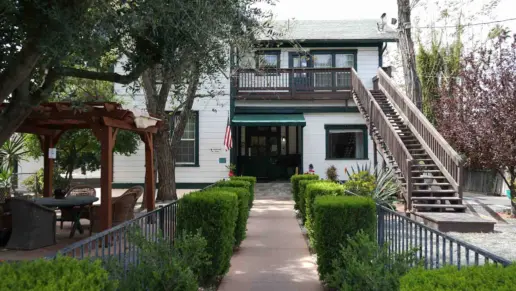About Telecare Willow Rock Center
Seneca Center - Willow Rock offers outpatient treatment for adolescents with alcohol and/or substance addiction. The program includes individual counseling, group therapy, family support and more. Seneca Center - Willow Rock is located at San Leandro, California.
Willow Rock Center is an adolescent crisis stabilization and treatment facility provided through Seneca Family of Agencies (SFA), Telecare Corporation, and Alameda County Behavioral Health Care Services.
The facility has three complementary levels of programs: a 23-hour crisis stabilization unit (SFA), an inpatient psychiatric program (Telecare), and a short-term outpatient mental health program (SFA).
Seneca’s Crisis Stabilization Unit (CSU) is the front-end of the continuum of care providing each youth with multi-disciplinary risk assessment to determine level of care. The CSU provides mental health interventions necessary to divert from hospitalization adolescents who may be safely discharged to the community. Youth who require inpatient psychiatric services are transferred to the inpatient facility when needed.
The Crisis Stabilization Unit staff and inpatient staff provide a safe, peaceful and nurturing environment as they assist youth in regaining the stability necessary to safely return home or to a community-based placement. Youth being discharged from the CSU or Telecare inpatient psychiatric program may receive short-term outpatient mental health services until they are linked to community based mental health services.
Latest Reviews
Rehab Score
Gallery
Accepted Insurance
Other Forms of Payment
Medicaid is a state based program that helps lower-income individuals and families pay for healthcare. Medicaid covers addiction treatment so those enrolled can use their coverage to pay for rehab. When a program accepts Medicaid the client often pays very little or nothing out of their own pocket.
Private insurance refers to any kind of healthcare coverage that isn't from the state or federal government. This includes individual and family plans offered by an employer or purchased from the Insurance Marketplace. Every plan will have different requirements and out of pocket costs so be sure to get the full details before you start treatment.
Self-pay involves paying for treatment out of your own pocket. You can use savings or credit, get a personal loan, or receive help from family and friends to fund your treatment. If you don't have insurance or your insurance plan doesn't cover a specific program, self-pay can help ensure you still get the care you need.
Financial aid can take many forms. Centers may have grants or scholarships available to clients who meet eligibility requirements. Programs that receive SAMHSA grants may have financial aid available for those who need treatment as well. Grants and scholarships can help you pai for treatment without having to repay.
Medicare is a federal program that provides health insurance for those 65 and older. It also serves people under 65 with chronic and disabling health challenges. To use Medicare for addiction treatment you need to find a program that accepts Medicare and is in network with your plan. Out of pocket costs and preauthorization requirements vary, so always check with your provider.
Addiction Treatments
Levels of Care
Treatments
Mental health rehabs focus on helping individuals recover from mental illnesses like bipolar disorder, clinical depression, anxiety disorders, schizophrenia, and more. Mental health professionals at these facilities are trained to understand and treat mental health issues, both in individual and group settings.
Programs

Clinical Services
Cognitive Behavioral Therapy (CBT) is a therapy modality that focuses on the relationship between one's thoughts, feelings, and behaviors. It is used to establish and allow for healthy responses to thoughts and feelings (instead of unhealthy responses, like using drugs or alcohol). CBT has been proven effective for recovering addicts of all kinds, and is used to strengthen a patient's own self-awareness and ability to self-regulate. CBT allows individuals to monitor their own emotional state, become more adept at communicating with others, and manage stress without needing to engage in substance abuse.
Research clearly demonstrates that recovery is far more successful and sustainable when loved ones like family members participate in rehab and substance abuse treatment. Genetic factors may be at play when it comes to drug and alcohol addiction, as well as mental health issues. Family dynamics often play a critical role in addiction triggers, and if properly educated, family members can be a strong source of support when it comes to rehabilitation.
Group therapy is any therapeutic work that happens in a group (not one-on-one). There are a number of different group therapy modalities, including support groups, experiential therapy, psycho-education, and more. Group therapy involves treatment as well as processing interaction between group members.
In individual therapy, a patient meets one-on-one with a trained psychologist or counselor. Therapy is a pivotal part of effective substance abuse treatment, as it often covers root causes of addiction, including challenges faced by the patient in their social, family, and work/school life.
Amenities
-
Private Setting
Staff & Accreditations
Staff

CEO

Founder & CEO Emeritus

Chief Strategy Officer

Chief Program Officer of Education Services

Chief Program Officer

COO

Chief Equity and Inclusion Officer
Accreditations

The Joint Commission, formerly known as JCAHO, is a nonprofit organization that accredits rehab organizations and programs. Founded in 1951, the Joint Commision's mission is to improve the quality of patient care and demonstrating the quality of patient care.
Joint Commission Accreditation: Yes
Contact Information
2050 Fairmont Drive
San Leandro, CA 94578








